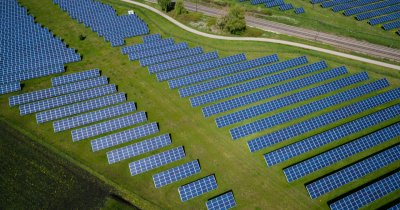The Communication sets out the key investments and reforms that are required to achieve our common objectives and underlines the importance of coordinated action by all relevant actors, including the EU, Member States and the private sector.
Towards a green, digital, and resilient economy
The green transition is an opportunity to put Europe on a new path of a sustainable and inclusive growth. In addition to tackling climate change, it will help reduce energy bills and dependence on fossil fuel imports, thus improving energy and resource security of the Union.
To deliver on the European Green Deal, the EU needs to increase the annual investments by around €520 billion per year in the coming decade, compared to the previous one.
From those additional investments, €390 billion per year would correspond to the decarbonisation of the economy, particularly in the energy sector, and €130 billion per year correspond to the other environmental objectives.
For the green transition to succeed, it must put people first and care for those who will be most affected. To this end, the Commission has put fairness at the heart of its policies under the European Green Deal, including the ‘Fit for 55' package.
The Digital Compass proposed by the Commission sets out the Union's digital targets for 2030. To achieve these ambitions, the EU needs to step up investments in key digital technologies, including cyber security, cloud computing, artificial intelligence, data spaces, blockchain and quantum computing, and semiconductors, as well as in the relevant skills.
To foster the digital transition, a 2020 estimate shows that additional investment of around €125 billion are needed per year. A fair digital transformation has the potential to increase the innovation and productivity of the EU economy, offering new opportunities for people and businesses.
The digital transition will also contribute to the green objectives, with synergies in many areas of a smart circular economy.
Ensuring a fair and inclusive economic transformation
The transformation of the European economy will only succeed if it is fair and inclusive, and if every citizen can reap the benefits offered by the twin green and digital transitions. The welfare effects of digitalisation and decarbonisation are likely to be unequally distributed in the absence of accompanying measures.
Labour reallocation within and between sectors will require reforms and large-scale investment in reskilling and upskilling. A strong policy response at all levels will be needed to effectively address the social and cohesion challenges ahead of us.
 Oana Coșman
Oana Coșman












Any thoughts?